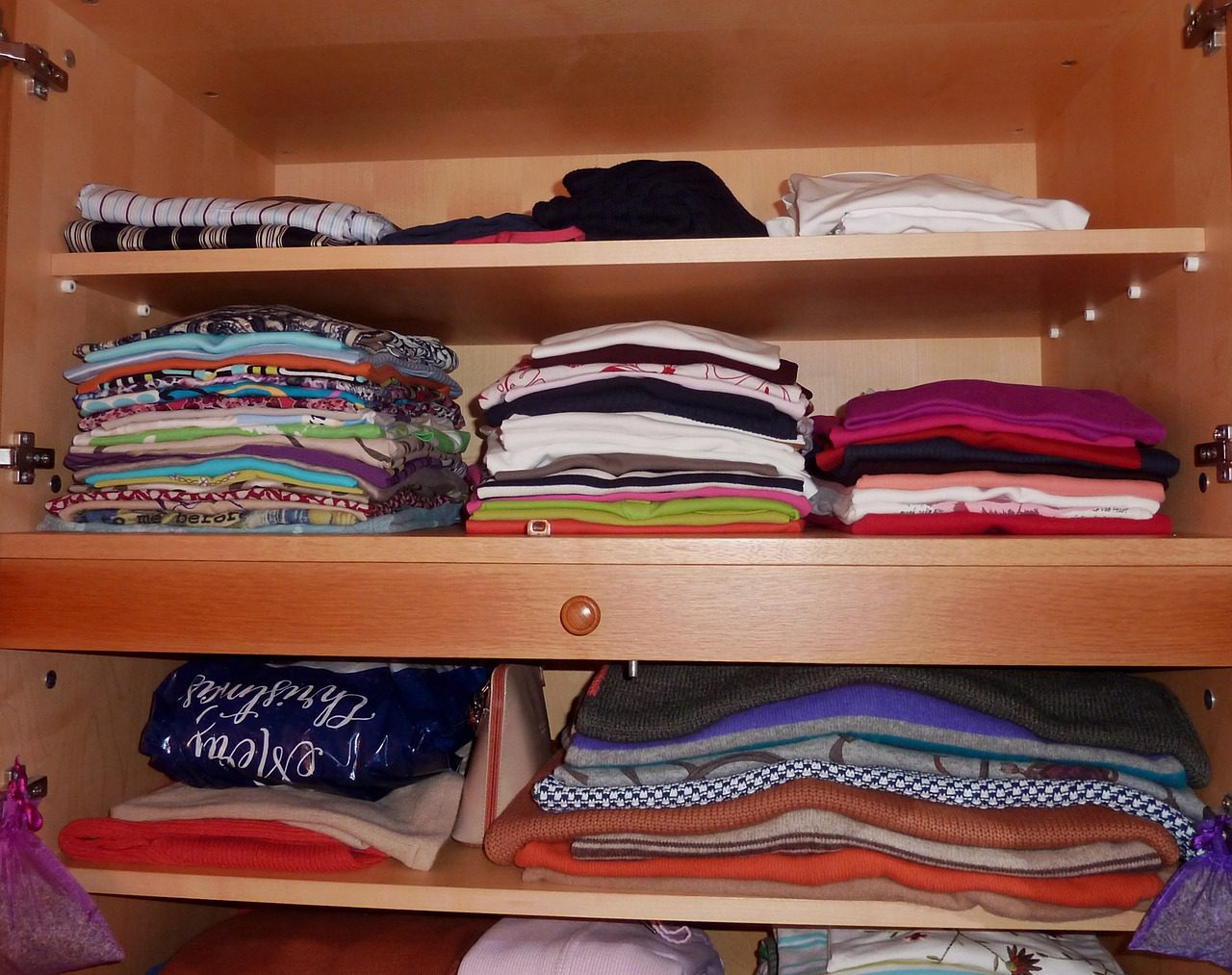
Whether it’s time for a spring clean, you’re moving house, or there’s too much clutter in your home, decluttering is always worthwhile. There’s nothing like a clutter-free home to leave you feeling organised and cleansed. It seems that decluttering has recently become quite the phenomenon. With Marie Kondo’s growing fame, more people than ever seem enthusiastic about decluttering. If your house is in need of a declutter, we can help. Consider this “Poverty Child meets KonMari”. Below are 5 simple steps for decluttering your home. These are based on the guidance of Marie Kondo and her KonMari method for tidying. Once you have established which items you no longer want to keep, you can recycle them with us. Creating a tidy and organised space has never been so simple.
Commit yourself to the task of decluttering
This is Marie Kondo’s first rule of decluttering. Before starting what can seem like the tedious task of tidying, get yourself into a positive mindset. Remind yourself of your motivation for decluttering. As the KonMari method emphasises, imagine your ideal lifestyle. Let this guide you. A decluttered home will bring you better organisation, increased productivity and less stress. If you’re using the KonMari method for the first time, keep reminding yourself that it will be interesting and inspiring to try something new. Remember that all the goods you decide to get rid of will be recycled with us. This will help to fund our projects in developing countries. You’ll have played a part in helping vulnerable children that are subject to a life in slums and on the streets.
Tidy by category, not by location
Part of the KonMari method is that you tidy according to the category of your items, not by their location. Don’t tidy by room, tidy by category. One of Marie Kondo’s rules is that you stick to the order. You start with clothes, then books, and then move on to papers, miscellaneous items and sentimental items. Gather your items into these categories before sorting through them.
Ask yourself, “does this item bring me joy?”
One of Marie Kondo’s main principles for the KonMari method is that you focus on what brings you joy. You should think about what you can keep instead of what you can discard. Once you have your categories sorted, go through each item and ask “does this item bring me any joy?” If your answer is yes, put the item into a pile of things to keep. If it no longer sparks joy, put the item in a pile of belongings to send to our recycling initiative. You can check out all the items we can accept under the “donate” tab on our website. We are happy to accept broken items, so don’t worry if things aren’t working as they should be.
Contact us for postage materials
If your stuff weighs 10kg or more altogether, you can request a recycling sack from us. Alternatively, if your items weigh less than this, you can ask us for an address label. We’ll email this out to you for posting your unwanted goods to us.
Send your unwanted goods to us
After all the hard work and commitment that has gone into your decluttering, it’s time to get rid of your unwanted items! If you’ve used the address label, you’ll post them out to us. If you’ve used the recycling sacks from us, we can arrange for a courier to collect the items you are kindly donating. All this information is available on our website.
Once you’ve decluttered your home, be proud of the effort you have put into creating a more organised space. You’ll soon begin to feel the benefits of having an organised and decluttered home to live in. Remember, this process isn’t just helping you and anybody else that shares your home. You’re helping us to fund our projects. These projects aim to break the vicious cycle of poverty street children are trapped in. Your donated items will help us to make a real difference.


